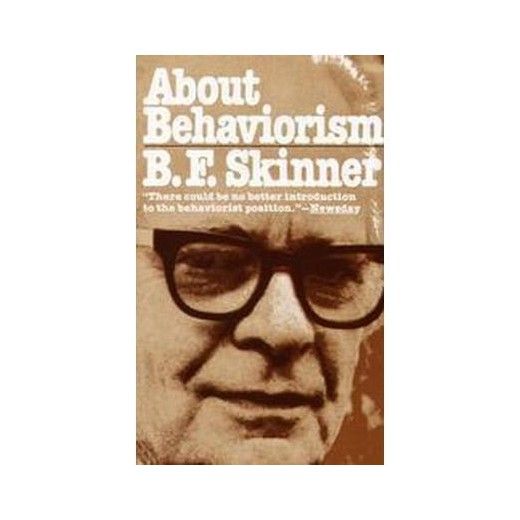Always do what you are afraid to do
I don't want to be a blogger anymore. And that works out just fine, since I'm clearly not a blogger anymore. Or at least not in the way I was back in the early days of social media.
I launched this blog late in 2004. But things took off the following year. It seems remarkable to me now, but I published 272 blog posts in 2005.
But that volume dropped steadily as more and more people entered the game and as the game grew less interesting to me. Last year I posted just 12 times. The piece you're reading now is just my fourth of 2011.
I've never been one to insist upon a clear standard of what is, and isn't blogging. But it seems clear to me that whatever it is I'm doing on this site, it's no longer blogging.
I may be using blogging software. The search engines may still classify this site as a blog. But I'm not a blogger anymore.
But if I'm no longer a blogger, then what am I?
It was blogging that transformed my career. When I launched this site I was largely unknown in the world of journalism. I had launched one of the first B2B news sites in existence. I was an online producer at the early CNN property that later became CNNMoney. I was an executive in the early days at About.com. I had been given the good luck to be around in the early days of digital journalism, but no one knew me. I was just a guy with a moderately good resume, a substantially large ego and a firmly held belief that I had something important to say to the B2B publishing industry.
That was the perfect recipe for blogging. And it worked for me.
By 2006 I had morphed into "Paul Conley, the blogger." I was weirdly famous in some cool media niches. I hosted sessions at the Folio:Show, the College Media Advisors convention, the ASBPE national convention and ABM's Digital Velocity conference. By 2008, I had become "THE Paul Conley, the controversial blogger." I was the keynote speaker at both the ASBPE national convention and the Southeast Journalism Conference for student journalists.
Then something happened.
Two years ago this month I wrote a piece suggesting that the media revolution had ended. The previous decade, I said, had been one of "ceaseless change and challenge ...a madcap series of never-ending developments (that had been) glorious and exciting." But the heady days of the revolution, I said, had given way to a less interesting era of incremental change.
After that, the number of posts I made on this blog began to plummet.
Last night I took a look at a blog post by my friend John Bethune, who runs the B2BMemes site. It was, as always, a wonderful and insightful bit of writing.
As I reached the conclusion of his piece, I saw that at the bottom of the page he has a small list of sites that he calls Brilliant Blogs -- and my blog was on the list.
And I thought, "that's so nice."
Then my hand moved and my mouse drifted over the link to my blog and a little descriptor popped up that said "occasional comments on trends in B2B media."
And I thought, "that's so ... accurate."
I've gone from being "Paul Conley the blogger" to being "Paul Conley, occasional commenter."
A few months ago I came across a piece on Clientonomy, the wonderful site from Alistair MacPherson about the consulting industry. Mac asked the question I've heard asked a thousand times -- "How Often Should You Blog." His answer was the same that any sensible person would give you, "there are no hard-and-fast rules."
But it was the opening paragraphs of his piece that resonated with me.
"But let me ask you something," he wrote. "How many songs should a composer write? How many movies should a film director shoot? How many dances should a choreographer create?"
When I was Paul Conley the Blogger, things were simpler. (How many blog posts should a blogger write? Lots of them.)
But now that I don't think of myself as a blogger, now that no one thinks of me that way any longer, I need a different answer.
How many posts should an occasional commenter make?
How often should a consultant blog?
Or --- and this is the question that seems somehow right to me -- how many essays should an essayist write?
A mind that startled us
I had a little bit of free time this summer, and I spent much of it wondering what it was I should do with free time. Obviously, I didn't spend it blogging. Although I did spend some considerable hours thinking that I should do exactly that.
Nor did I get in shape, volunteer for a worthy cause, visit a museum or mount a protest against one of the world's many outrages. Although I did make plans to do all of those.
But I did accomplish one worthy goal -- I began to re-read Emerson.
When I was a young man in Boston, Ralph Waldo Emerson was a bit of a hero to me. I know now that I misunderstood much of what he wrote. That was inevitable. I was a cynical teenager, educated by rationalists. The work of the great Transcendentalist must remain elusive to such a child.
But something about Emerson stuck with me.
First and foremost, I wanted to be Emerson. I envied his intellect. I longed to think big thoughts, to understand nature and God and man. I envied, too, his lifestyle. There was no appeal to me in the solitude of Thoreau's cabin. I wanted Emerson's life: to write, to travel the country on speaking tours, to mingle with great minds and then return to a home in New England when the weather suited me.
I wanted to be a public intellectual.
I wanted, more than anything else in the world, to be an essayist.
At some point in adulthood, I drifted into an easier version of that dream. I wrote, although not of things of great importance. I found bright and articulate people for conversation, but maintained a working-class suspicion of well educated intellectuals. I moved often -- changing apartments and cities, but returned nearly every autumn to Massachusetts.
Then, I started blogging.
And what was my blogging life in 2006-08 if not some third-class version of Emerson's? Writing, travel, acclaim -- my work was hardly Emersonian, but I became a sort of Emerson lite, a semi-intellectual for B2B media, discussing meta tags rather than metaphysics.
And I loved every minute of it.
But that was then.
Now the blogosphere that once seemed so full of fresh ideas feels like an echo chamber. Once there was a revolution, and I yelled through the entire thing because Emerson taught me that "sometimes a scream is better than a thesis." Now the revolution is over. Where once I could not shut up about the media industry, now there seems little reason to talk, let alone to screech.
So I don't want to be a blogger any longer.
I want instead to be the man I wanted to be when I was child.
But even I -- as pretentious a man and writer as you are likely to ever meet -- has doubts that I can be anything more than what I have already been -- a blogger, a businessman, a consultant and journalist and executive.
And yet ...
Emerson, of course, found the answer more than a century before I asked the question:
"There is a time in every man's education when he arrives at the conviction that envy is ignorance; that imitation is suicide; that he must take himself for better, for worse, as his portion; that though the wide universe is full of good, no kernel of nourishing corn can come to him but through his toil bestowed on that plot of ground which is given to him to till ... We but half express ourselves, and are ashamed of that divine idea which each of us represents. It may be safely trusted as proportionate and of good issues, so it be faithfully imparted, but God will not have his work made manifest by cowards. A man is relieved and gay when he has put his heart into his work and done his best; but what he has said or done otherwise, shall give him no peace. It is a deliverance which does not deliver. In the attempt his genius deserts him; no muse befriends; no invention, no hope."
Every artist was first an amateur
When I look back over recent posts on this blog (or, more importantly, when I look over the unfinished pieces that sit on my computer,) it seems clear that I've been trying to change the how of my writing. Whatever blogging might be, there has been less of it here than there once was. I've not put my heart into blogging for a long time. And it shows. The muse befriends me no more.
Instead, I'm yearning to write pieces that are longer, less frequent and more thoughtful. I yearn, too, to stretch beyond journalism, media and business. I want to write of the world, not its niches.
Whatever an essay may be (and brighter minds than mine disagree over their structure and tone), essays are what I want to write. That is the plot of ground I was given all those years ago. That is the soil I must till.
I'm not leaving B2B media. Nor am I closing my consulting business. There are mouths to be fed. Besides, I like working with the people of B2B.
I won't abandon this site, nor will I stop writing entirely about the news and business of business news.
But I will also write about other things -- things less timely and more timeless. Some of those things I'll publish here. Others will go elsewhere.
Because I'm no longer a blogger. Nor am I an occasional commenter.
I'm an occasional essayist with blogging software.
(Editor's Note: If you're interested in learning more about the craft and history of the essay, you should check out the work of my friend Dan Conley [no relation.] Dan has a website, a blog and soon a book about Montaigne, the French writer who invented the essay.)




